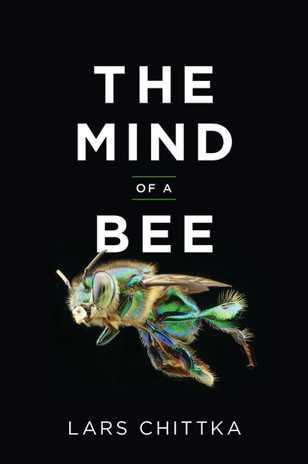Will Bees Go Extinct?
Do I Need To Worry About Bees?
It should be noted that there are around 25,000 described bee species in the world, however, scientists tend to agree that there are probably more species awaiting discovery.
So should we be concerned about bees going extinct?
In my view, yes, we should. Read on to find out why.
Which Bees Are Extinct Or In Danger Of Extinction?
Overwhelmingly, it is populations of wild bee species that are most threatened.
Across the globe, some wild bee species are actually already extinct (such as Halictus maculatus in the UK1) or population numbers are severely threatened with extinction (such as Franklin's bumble bee (Bombus franklini) in the US2) .
Indeed, alarming trends appear to be indicative of population decline of many other wild bee species.
In my view, if these trends continue, it's surely not inconceivable that more species will be threatened or become extinct if measures are not taken to reverse the declines.
Why Wild Bees Are The Most Vulnerable - And What The Data Tells Us
The reason is that wild bees are particularly vulnerable to habitat loss and change. This is especially true where bee species are dependent on a narrow range of plant matter for food, and require particular nesting conditions.
Wild Bee Vulnerability In The US
A study by Koh et al3 suggests that between 2008 and 2013, modeled wild bee abundance declined across 23% of US land area.
This decline was generally associated with conversion of natural habitats to row crops, such as corn.
Wild Bee Vulnerability In Europe
Data from the IUCN4 suggests that:
- The status of a 1,101 species (56.7%) in Europe and 1,048 species (55.6%) in the EU 27 countries, is unknown. This is because of lack of data concerning the species. This means we have no idea whether the species is in abundance or decline.
- However, overall, 9.2% of bees are definitely considered threatened in all of Europe.
- Among the 27 EU country members, 9.1% are threatened with extinction.
- A further 5.2% and 5.4% of bees are considered Near Threatened in Europe and the EU 27 countries respectively (101 species at both levels).
-
Nearly 30% of all threatened species (Critically Endangered, Endangered, or Vulnerable) are endemic to Europe (found
nowhere else in the world).
Are Honey Bees At Risk Of Extinction?
Honey bees are important and in the USA, beekeepers are under pressure to sustain their managed colonies.
Figures published by Statista4 indicated that beekeepers in the U.S. lost an estimated 48% of their honey bee colonies in 2022-23. Between 2020-21 the loss rate was even higher at 51%. That is a huge loss, and raises serious questions about colony health and sustainability, as well as environmental factors (such as potential increased susceptibility to Varroa following exposure to insecticides).
A study by Potts et al5 has suggested that the number of managed colonies at least in central Europe, may also be in decline.
Despite this, the genus Apis (honey bees) are not at risk of extinction, although managed colonies may face a number of challenges.
It is important to monitor the health and progress of honey bee colonies, since they provide vital, early information about potential pollution and environmental issues - see Why Honey Bees Matter.
What Can We Do To Help Bees?
The most important thing you can do is create habitat for bees in your garden.
Also, see my list: 10 Things You Can Do To Help Bees.
References
1. Field Guide to the Bees of Great Britain and Ireland by Steven Falk, Bloomsbury 2015.
3. See my page: Are Bees Fish In California?
2. Koh I, Lonsdorf EV, Williams NM, Brittain C, Isaacs R, Gibbs J, Ricketts TH. Modeling the status, trends, and impacts of wild bee abundance in the United States. Proc Natl Acad Sci U S A. 2016 Jan 5;113(1):140-5. doi: 10.1073/pnas.1517685113. Epub 2015 Dec 22. PMID: 26699460; PMCID: PMC4711882.
3. IUCN Red List of Threatened Species
4. Statista.com: U.S. Honeybees Suffer Second Deadliest Season on Record, Jun 23, 2023.
5. Potts, S. G. et al. Declines of managed honey bees and beekeepers in Europe. J. Apic. Res. 49, 15–22 (2010).
If you found this page helpful or interesting, I'd really be grateful if you would share it with others - if not this page, perhaps another, such as Gardening For Bees.
Thank you so much :) .
